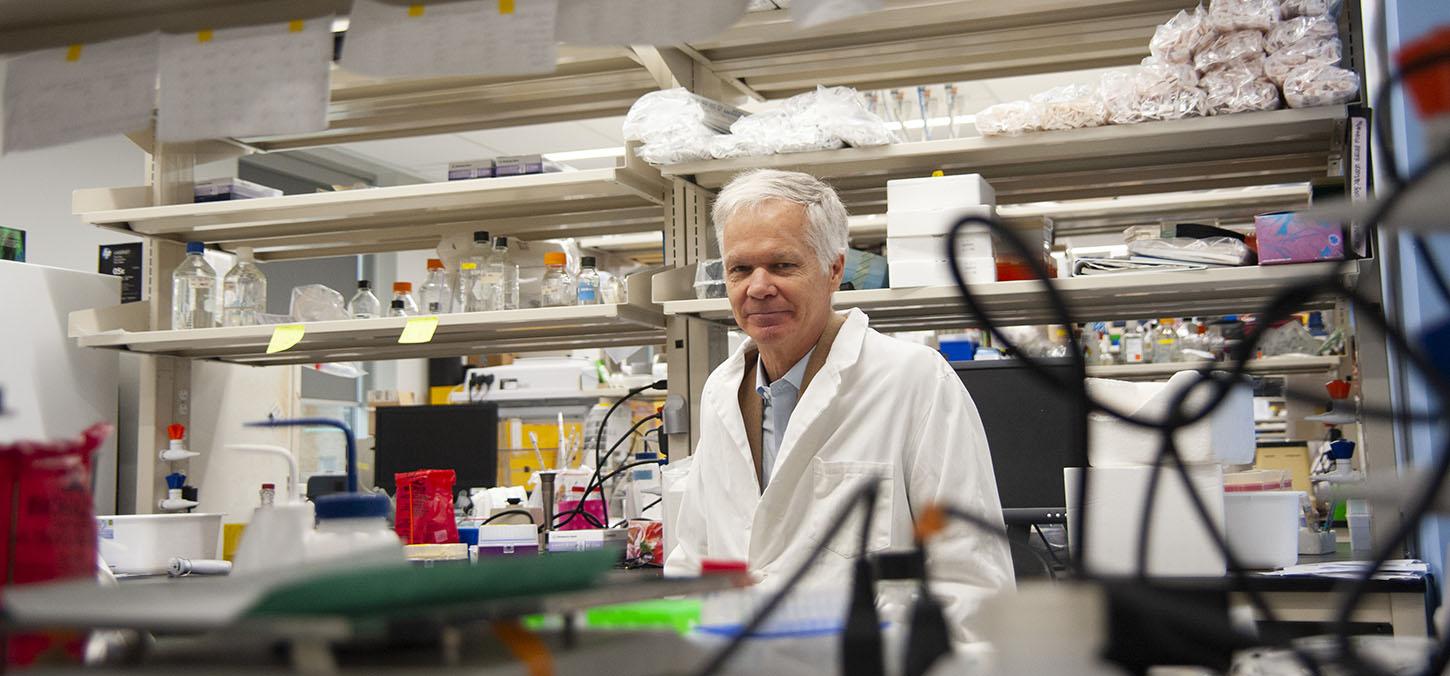
Dentistry professor secures over $2M in CIHR grants for research
By Rachel Boutet
For the first time in his research career, professor Chris McCulloch has obtained three CIHR research grants in one single competition, a rare feat for any researcher. The 5-year grants, totaling over $2M in funding, will help McCulloch and his team conduct research related to oral health. This demonstrates the continuation of McCulloch’s significant contributions to research in dentistry in Canada, leading to new discoveries and treatments.
New Approach for Treatment of Periodontitis
McCulloch has been awarded $749,700 to gain a better understanding of how in periodontal tissues, periodontitis causes a breakdown of the connective tissues that support teeth. When dentists perform procedures to treat periodontitis, they are frequently limited by their ability to promote the reattachment of the gum tissue back to the tooth roots. This study will look at identifying a calcium channel protein, TRPV4, in gum tissue cells called fibroblasts. By obtaining an improved understanding of how TRPV4 mediates wound contraction and regulates the ability of fibroblasts to close wounded gum tissue, McCulloch and colleagues hope to find new, TRPV4-related approaches for the treatment of gum diseases, which affects over 30 per cent of the adult North American population.
Disrupting the fibrotic process
Along with co-PI assistant professor Karina Carneiro, McCulloch will study fibrosis, which is the formation of disorganized connective tissues and the loss of their normal function. Fibrosis has important implications for human health and is strongly associated with certain types of invasive cancers, periodontitis, heart failure and chronic kidney disease. The $803,250 grant will be used to investigate how cells, when disrupted by inflammatory diseases or malignancy, cause fibrosis to occur. When cancer invades tissues, it forms collagen-rich scar tissues around the circumference of the cell invasion front. The focus of the work is on the DDR1 protein, which is expressed by cancer cells when they invade. Interestingly, DDR1 is also strongly associated with inflammatory conditions including gum inflammation and chronic lung disease. In both of these types of diseases there is a strong fibrotic reaction and increased DDR1 expression. McCulloch and Carneiro will use their current knowledge and new experimental approaches to look at how DDR1 promotes tissue scarring. They will also examine how the Major Vault protein, which is normally involved in RNA processing, interacts with DDR1 and contributes to fibrosis. The research team hopes to learn how the interplay between DDR1 and Major Vault protein causes fibrosis and how this interaction might be interrupted by newly-developed inhibitors as potential anti-fibrotic treatments.
Molecular analysis of cell migration
Cell migration is critical for development, wound healing and immune system function, but it also is a centrally important process in cancer metastasis and heart diseases. With a $726,750 grant, McCulloch and U of T assistant professor Sergey Plotnikov, will study how cells migrate towards stiffer regions of their underlying supporting surfaces, a phenomenon that is usually caused by fibrosis. This project will shed light on how healthy cells and cancer cells sense the mechanical properties of the environment. The team hopes that their results will improve our understanding of how cells migrate in response to mechanical cues, which could be important for developing drugs that target cell migration in human diseases such as invasive cancers.
Photo: Chris McCulloch (Jeff Comber)